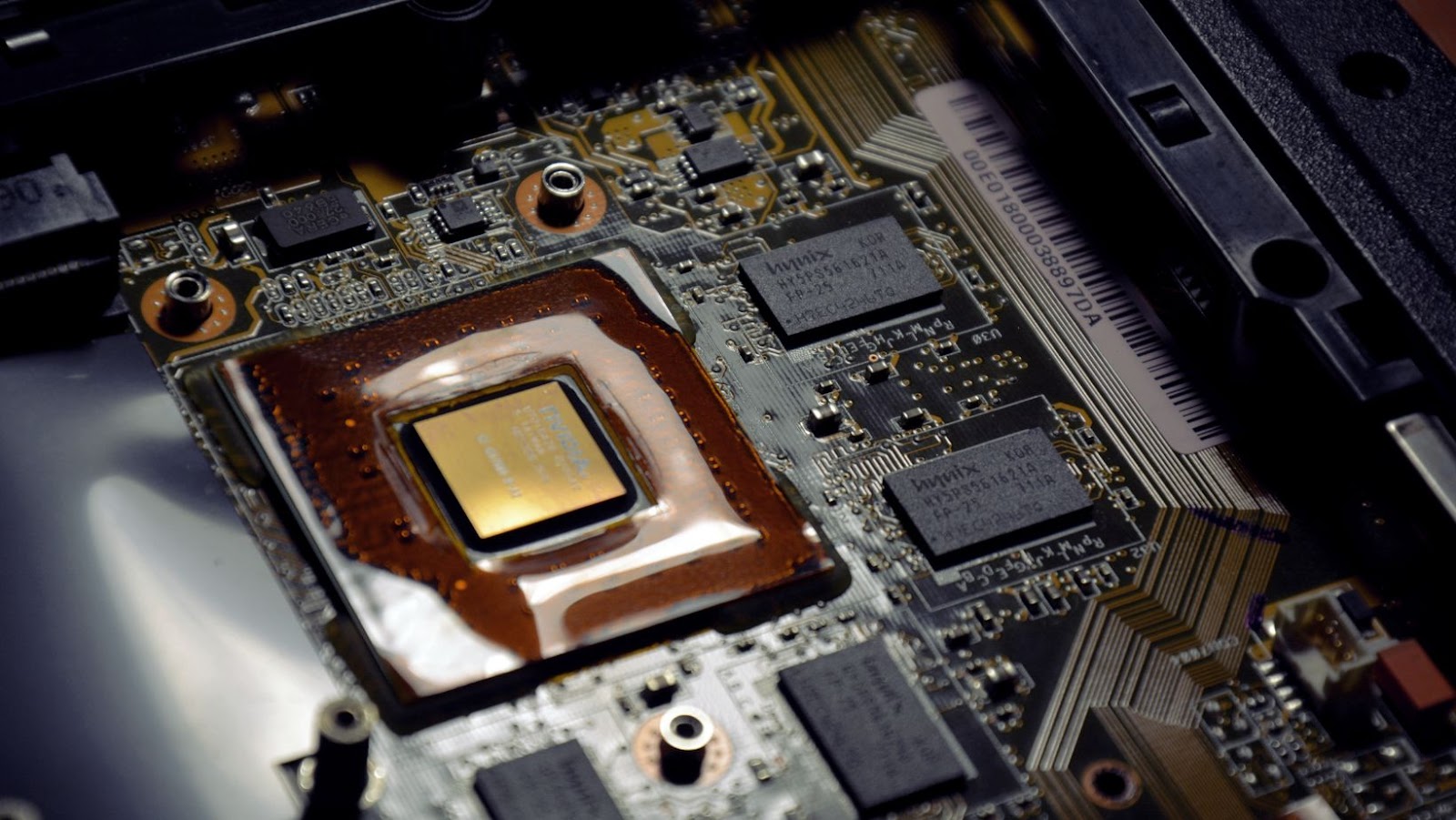Intel, the world’s leading maker of semiconductors, recently announced major plans to begin chip manufacturing within its own foundry. This move has major implications for the semiconductor industry at large, specifically for two of Intel’s largest competitors in the field — TSMC and Samsung. In this article, we will look at how Intel’s move will affect TSMC and Samsung in terms of their market share, technology, and competitive advantages as it relates to investment opportunities.
Ultimately, this analysis aims to determine what the implications are for businesses considering investing in these companies. With this backdrop in mind, let us consider how Intel’s move is likely to affect these two tech giants and the entire semiconductor industry.
The Impact of Intel’s Plans on TSMC and Samsung
Intel recently announced plans to increase its semiconductor production, causing a ripple effect throughout the industry. This announcement left many wondering how this will affect the two largest semiconductor companies, TSMC and Samsung.
In this article, we will look at the implications of Intel’s plans for these two companies and analyze the potential impacts it may have on the semiconductor industry.
Intel’s Plans to Increase Its Semiconductor Manufacturing Capacity
Intel’s announcement of plans to increase its semiconductor manufacturing capacity by investing billions in additional assembly and test facilities could have a significant impact on the semiconductor industry. Intel’s decision to jump start chip production will significantly increase its capacity as well as its competitive position and market share.
The increased manufacturing capacity will undoubtedly benefit Intel financially, but it could come at the expense of TSMC and Samsung, who are Intel’s main competitors in the semiconductor field. TSMC and Samsung are the two leading players in this industry, commanding an overwhelming 80% of global chip production. The addition of more chip production by Intel could create an oversupply situation leading to decreased profits for both companies. Additionally, Intel’s plans might force them to adjust their prices to maintain market share while discouraging new entrants into the market as they attempt to compete with these established leaders.

Furthermore, Intel’s plans might create a divide between their current customers who remain loyal and those who opt for cheaper options from other producers or independent fabricators such as Global Foundries or United Microelectronics Corporation (UMC). This would help them retain their customer base but would also lead to lower overall profits since the customers now have more viable options which may cost less in comparison. Furthermore, TSMC and Samsung will find it harder to move up into higher-margin segments such as chips for servers since these are dominated by Intel at present which leaves them vulnerable in pricing negotiations with clients for other semiconductor components.
Overall, Intel’s move has staying power beyond just financial gains; it is likely that it will cause considerable change in the semiconductor sector with implications on both competitors and customers alike. It remains yet unclear how much of an impact this move bears on TSMSC and Samsung until more details are revealed; however it is safe to say that they will be struggling worse than ever before facing some serious threats posed by Intel’s market entry strategy with potential long-term effects looming ahead.
The Impact on TSMC and Samsung
The recent announcement from Intel that the company is planning on using TSMC and Samsung’s technologies to make their own products has the potential to drastically reshape the semiconductor industry. This new approach could be a game changer for both TSMC and Samsung, and ultimately for the entire industry.
For TSMC, this move could bring major gains in brand recognition and market share, resulting in increased profits. Additionally, Intel’s use of their technology could spur research and development as well as workforce expansion as demand for their products increases.

Samsung’s reaction has been a bit more muted since it is already established as a leader in chip manufacturing with many of its own products already designed to work with Intel processors. However, an increased relationship between Intel and Samsung could still benefit them financially by gaining access to more customers.
The entry of Intel into semiconductor manufacturing carries numerous implications beyond changes to what products are available in the market place: With Intel entering the field of GPU manufacturing this move could mean significant decreases in price due to competition with existing players like AMD.. Companies will also have to adopt new methods of innovation as they search for ways to stand out amidst an increasingly crowded field and fend off competitors like Intel directly. Additionally, it will be important for these organizations to consider intellectual property protection measures given that they will now be working alongside some of their biggest rivals in the tech industry such as Apple who use GPUs made by AMD rather than NVIDIA or a single source vendor like Qualcomm.
Furthermore there are likely to be changes within organizations themselves; with new collaborations being formed between companies from different tech areas (such casing software engineering, hardware development etc.) which may have unexpected outcomes in terms or relationships and design practices considering historically very few people have had any experience working across multiple disciplines/organizations simultaneously.
Ultimately these changes present both opportunities and obstacles for all involved – it’s up to each company determine how to best navigate them.
Implications for the Semiconductor Industry
As Intel announces plans to shift its production to other foundries, the implications for the semiconductor industry are extremely important. In particular, the impact of Intel’s plans on Taiwan Semiconductor Manufacturing Corporation (TSMC) and Samsung will be critical to the future of the semiconductor industry as a whole.
In this article, we’ll discuss the implications of Intel’s plans and the effects they will have on TSMC and Samsung.
Increased Competition
Due to Intel’s plans to expand its foundry business, Samsung and Taiwan Semiconductor Manufacturing Co. (TSMC) are likely to face increased competition in the semiconductor industry. Intel’s new manufacturing plants, more efficient processes, and moderate pricing structure are likely to give it an edge over the others in the market.

The entry of Intel into the foundry business can result in improved economies of scale and scope for all chip manufacturers. Intel’s superior capabilities and engineering solution pose a real challenge both in terms of capability and financial resources placed upon existing industry players. TSMC and Samsung will have to further innovate technologically or risk being debilitated by their costlier options compared to those offered by Intel. This increased competition will put pressure on both companies to constantly evaluate their current operations as well as future strategical decisions that they make within the semiconductor industry, such as whether they should focus more on wafer fabrication or device assembly capabilities.
Furthermore, due to shrinking margins, major semiconductor suppliers may need to consider expanding into new markets such as high-end consumer electronics or automotive chipsets in order to stay profitable since these offer higher margins than PC-related products do. In addition, TSMC could look for deeper partnerships beyond their existing global foundation partners with other system developers like Apple or Advanced Micro Devices (AMD). These increased collaboration opportunities may help them build a much larger portfolio of products that span a variety of technologies instead of just focusing on leading one technology at a time like they did before.
These strategies could help them remain attractive options despite increasing competition from Intel’s foray into Silicon Valley’s celebrated chip designing scene. However, only time will tell if these plans prove successful once implemented across all semiconductor players by major customers across different application segments within the industry.
Lower Prices
The news that Intel is outsourcing its chip production to Taiwan Semiconductor Manufacturing Co (TSMC) and South Korea’s Samsung will have significant implications for the semiconductor industry. The most obvious of these is that it could cause prices of some chips to drop significantly. This will have both positive and negative impacts on the industry.
On one hand, lower prices would make Intel’s chips more accessible to a wider market, increasing their customer base and leading to an overall increase in sales for the company. This could result in higher profits for Intel as well as better competition with other large chipmakers such as Nvidia and AMD.
On the other hand, competitors like TSMC, Samsung and other semiconductor companies may be forced to lower their own prices in order to remain competitive with Intel’s new pricing structure. This could lead to disrupted business models and reduced profits while threatening smaller players in the industry who would not be able to compete with giant multinational conglomerates like Intel.
Additionally, consumers may not see the full benefit of lower chip prices unless there are also reductions in related prices of hardware configurations such as motherboards, memory modules or graphic cards used alongside processors — all of which together create a complete system build.
Increased Innovation
As Intel moves toward a manufacturing model that increases competition and creates more opportunities for outsourcing, semiconductor companies worldwide are likely to experience increased innovation. Intel’s plans mean that small players in the semiconductor space will have more opportunities to compete, as the cost of entry for new technologies is lessened by Intel’s move away from large-scale chipmaking. This could lead to a greater variety of chips produced more quickly, at higher quality and lower cost.
Additionally, this could lead to increased competition between semiconductor companies focused on specific technologies. Firms that are able to produce chips for specialized applications faster or cheaper than their competitors will become increasingly important players in the market. This could present a great opportunity for companies who have been upstarts in the industry but unable to truly compete with Intel’s market share until now.
Finally, firms such as TSMC and Samsung — whose manufacturing process is highly advanced — may see an influx of interest from others who want access to their facilities and processes. Ultimately, these changes could lead to an era of heightened production rates across the board as well as larger output with further innovation coming out of the semiconductor industry than ever before.
